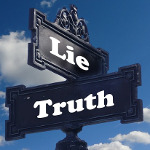Revenge of the Robocall Recipients: Jury Finds Marketer ViSalus Liable for 1.8 Million Calls
The outcome of a three-day class action trial accusing the nutritional supplement marketer ViSalus of violating the Telephone Consumer Protection Act hinged on the testimony of the named plaintiff, reports Reuters.
Jurors heard Lori Wakefield testify about four automated calls from ViSalus on her home phone line, according to Reuters’ Alison Frankel.
Jurors believed Wakefield and found that the calls violated the TCPA, and that the class Wakefield represents had received a grand total of 1.85 million improper robocalls. Their verdict exposes ViSalus to statutory damages of about $925 million, which could be trebled.







